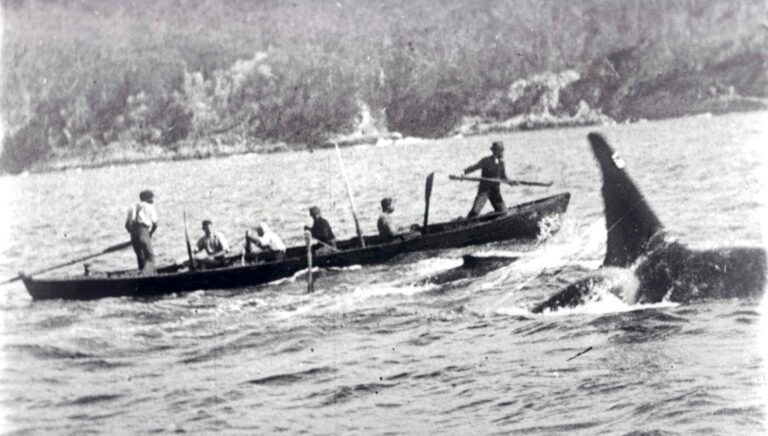Evolutionary biologists have succeeded in decoding the genetic lineage of a celebrated killer whale and a pod that once helped humans to hunt baleen whales off south-eastern Australia.
Old Tom led a pod known as the “Killers of Eden”, named after a whaling town in New South Wales. Killer whales had enjoyed a synergetic relationship with Indigenous Australian hunters in the area long before several generations of a European whaling family extended the arrangement in the late 19th / early 20th century.
The orcas would lead the hunters to the whales and were rewarded by being allowed to consume choice parts of their carcasses.
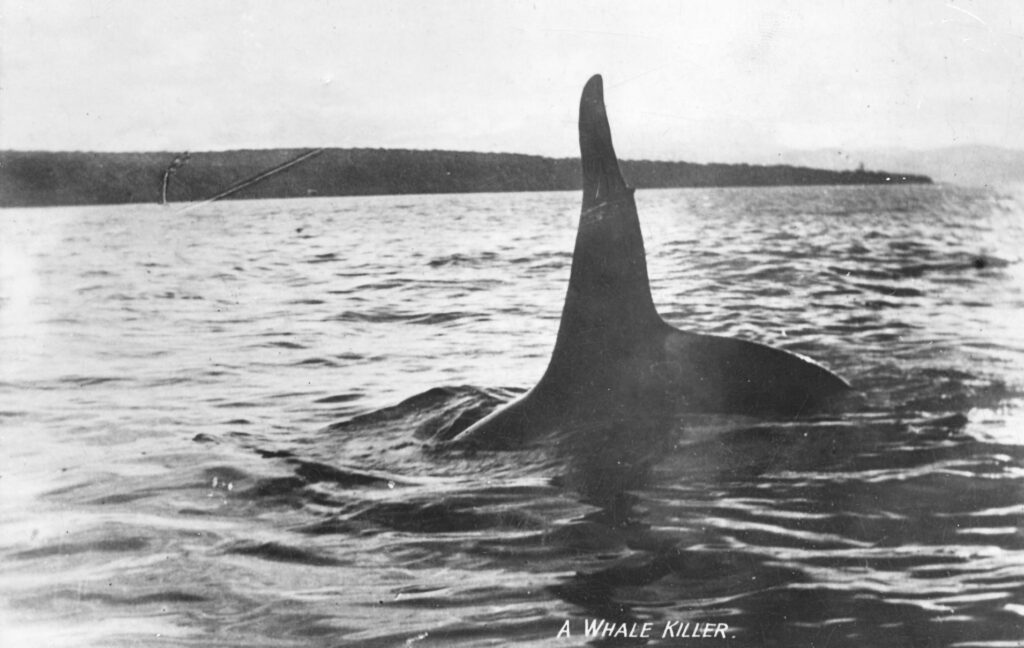
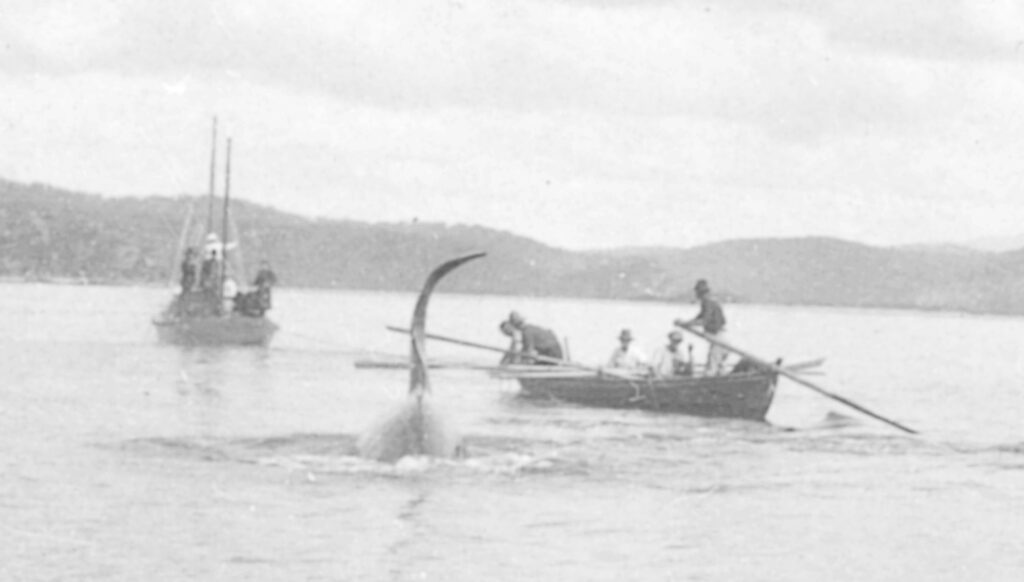
However, the closest modern-day DNA matches to Old Tom were found not to be in Australia at all, but New Zealand.
The famous orca died and was washed ashore in 1930, with his remains still on display in the Eden Killer Whale Museum. Using DNA from Old Tom’s teeth, PhD candidate Isabella Reeves of Flinders University and the Cetacean Research Centre worked with an international research team to trace Old Tom’s genetic lineage, using DNA sequencing with the results compared to global data.
Old Tom, 6.7m and weighing 6 tonnes, was found to have had common ancestors with killer whales from Australasia, the North Pacific and North Atlantic, but little of his DNA code was found in today’s killer whales globally, and no direct descendants could be traced, suggesting that the Killers of Eden became extinct locally.
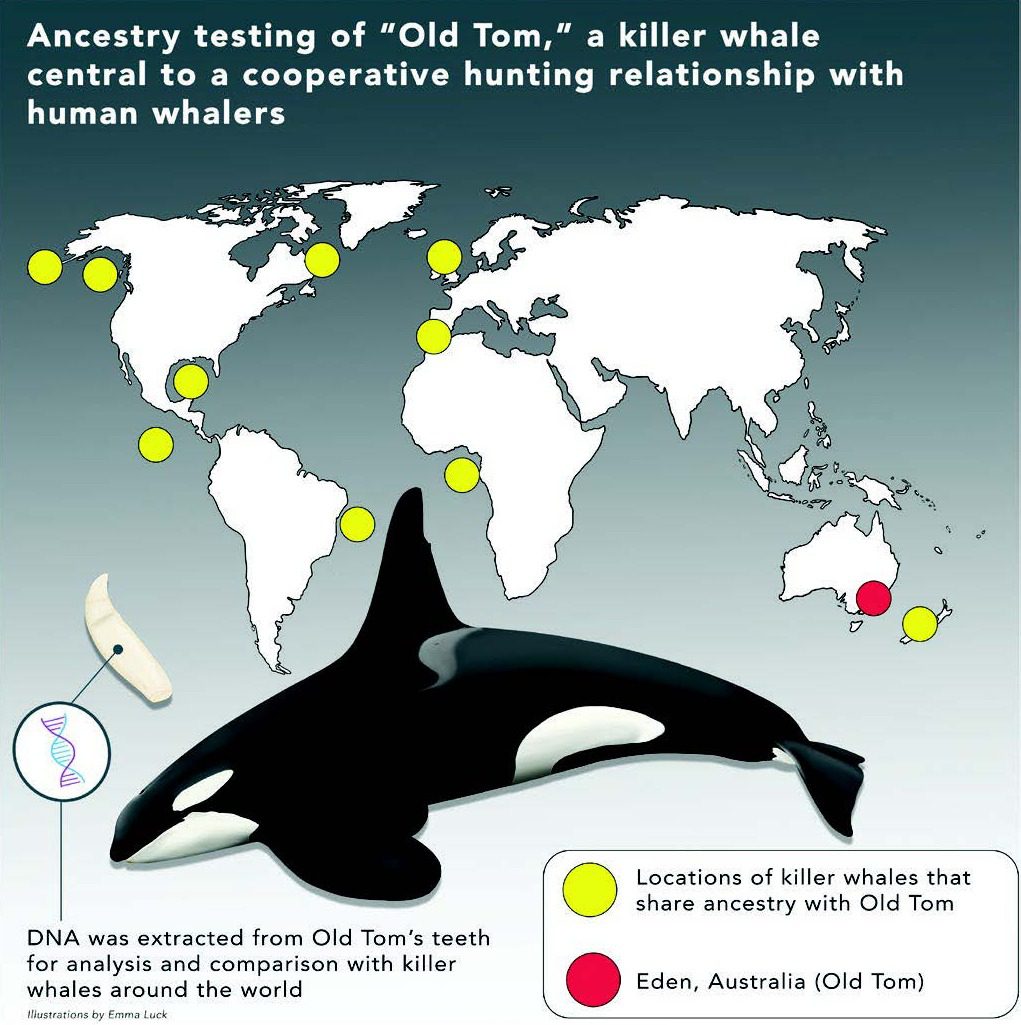
“The Killers of Eden represent a rare partnership between people and whales,” says Reeves. “Our research also delved into uncharted territory by unveiling a decolonised history.
“We collaborated with a Traditional Custodian, which gave us a fresh perspective on Eden’s whaling history to rectify historical inaccuracies and shed light on a crucial aspect of this unique story about the bond between their people and these whales.
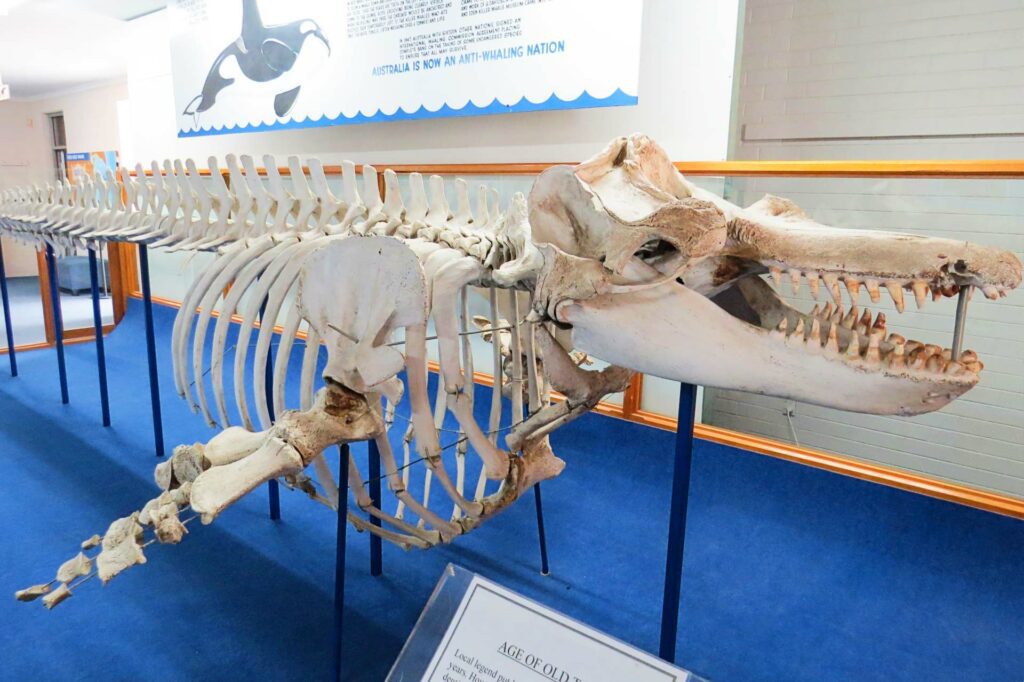
“In Twofold Bay, the coastal Thaua people, part of the Yuin nation, had a connection with the killer whales through the Dreaming, a relationship that was highly respected and relied upon due to the Thaua’s dependency on the ocean for resources.
“It’s important that we recognise that Indigenous Australians initiated the relationship with the killer whales before European colonisation and the advent of commercial whaling locally. This study rectifies discrepancies in local records and provides new insight into the origins of the killer whales in Eden and the history of Australasian killer whales.”
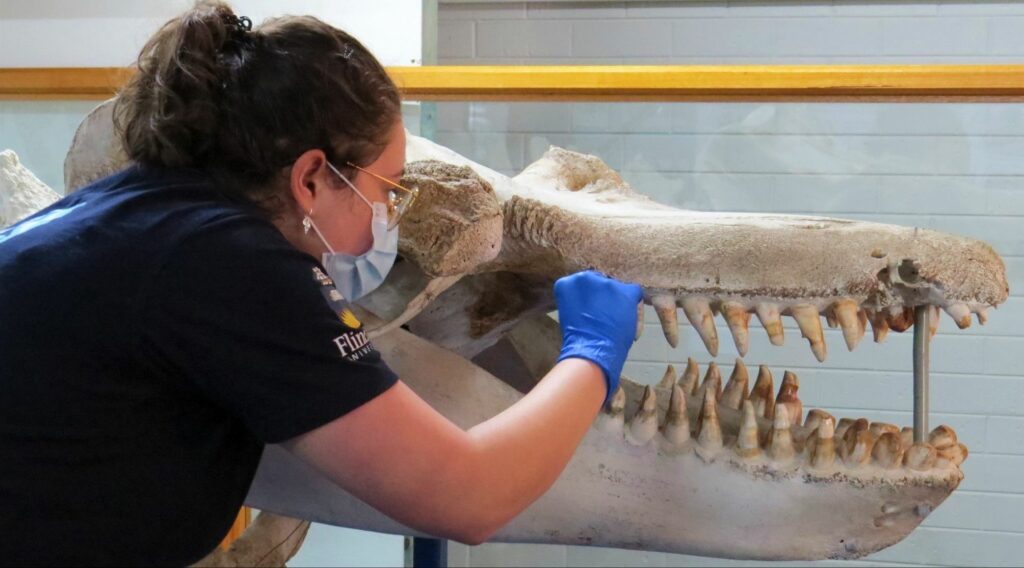
“We consider beowas to be our brothers,” said the Traditional Custodian, Steven Holmes, referring to killer whales. According to Dreamtime stories “when a Thaua member dies, they are reincarnated as a beowa. The beowas remained part of the Thaua, even after passing.
“The beowas would help the men by herding the other whales in the bay of Turembulerrer [Twofold Bay] for the whalers to kill. The Indigenous whalers would reward the beowas the tongue of the dead whale. This was soon known as the Law of the Tongue.” The study is published in the Journal of Heredity.
Also on Divernet: Why are killer whales attacking boats? Expert Q&A, Did orca kidnap pilot whale calf?, What makes male killer whales ‘mother's boys'?, Diver’s orca binge brings record fine, The Killer Whale Journals: Our Love and Fear of Orcas, by Hanne Strager
